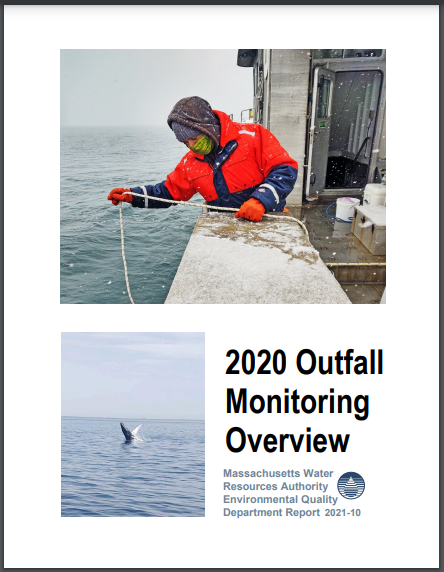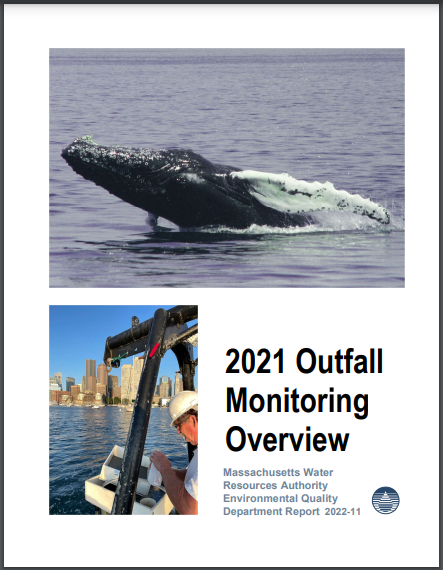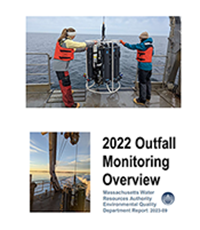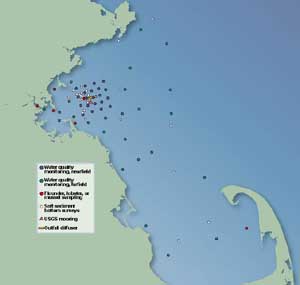| Home |
| Water System |
| Sewer System |
| Harbor and Bay |
| School Program |
| About MWRA |
| Doing Business with MWRA |
| Contact MWRA |
Boston Harbor
and Massachusetts Bay
Massachusetts
Water Resources Authority
| Archive |
Outfall Monitoring Overview
MONITORING IN BOSTON HARBOR & MASSACHUSETTS BAY
The Massachusetts Water Resources Authority discharges Greater Boston's treated wastewater (effluent) into Massachusetts Bay through a 9.5-mile outfall. MWRA has monitored the Bay's water quality since 1992, as part of a carefully designed Ambient Monitoring Program.
Before September 2000, treatment plant discharges were sent to Boston Harbor. After the completion of the the Boston Harbor Project, dramatic improvements occurred near the former harbor outfalls--reductions in bacteria and ammonium concentrations, and improvements in water clarity.
Data gathered by MWRA and contractors on the quality of sediments, water, and sea life in Boston Harbor and Massachusetts Bay show that the Bay outfall has been functioning as anticipated–-providing rapid dilution to the effluent–-with no significant adverse impacts. Results are published on this website and in the annual Outfall Monitoring Overview.
 |
 |
 |
At the beginning of the Boston
Harbor Project, many citizens and environmental groups were concerned that moving the effluent outfall from the
Harbor to the Bay would degrade the receiving water quality. Therefore, MWRA's NPDES discharge permit requires us to implement an extensive monitoring and reporting program..
MWRA goals are to help fulfill the public's desire for clean
beaches, healthy marine resources, seafood safe for eating,
and protection of the natural beauty of the Harbor and the Bay.
Staff scientists and contractors study the water, plankton, sediment, and fish and shellfish to measure environmental effects of pollution reduction projects. To date, we have found no cause for concern about the water quality in the Bay, and the Harbor has greatly improved.
The Outfall Monitoring Science Advisory Panel (OMSAP) oversees MWRA's monitoring program, providing advice on scientific issues.
